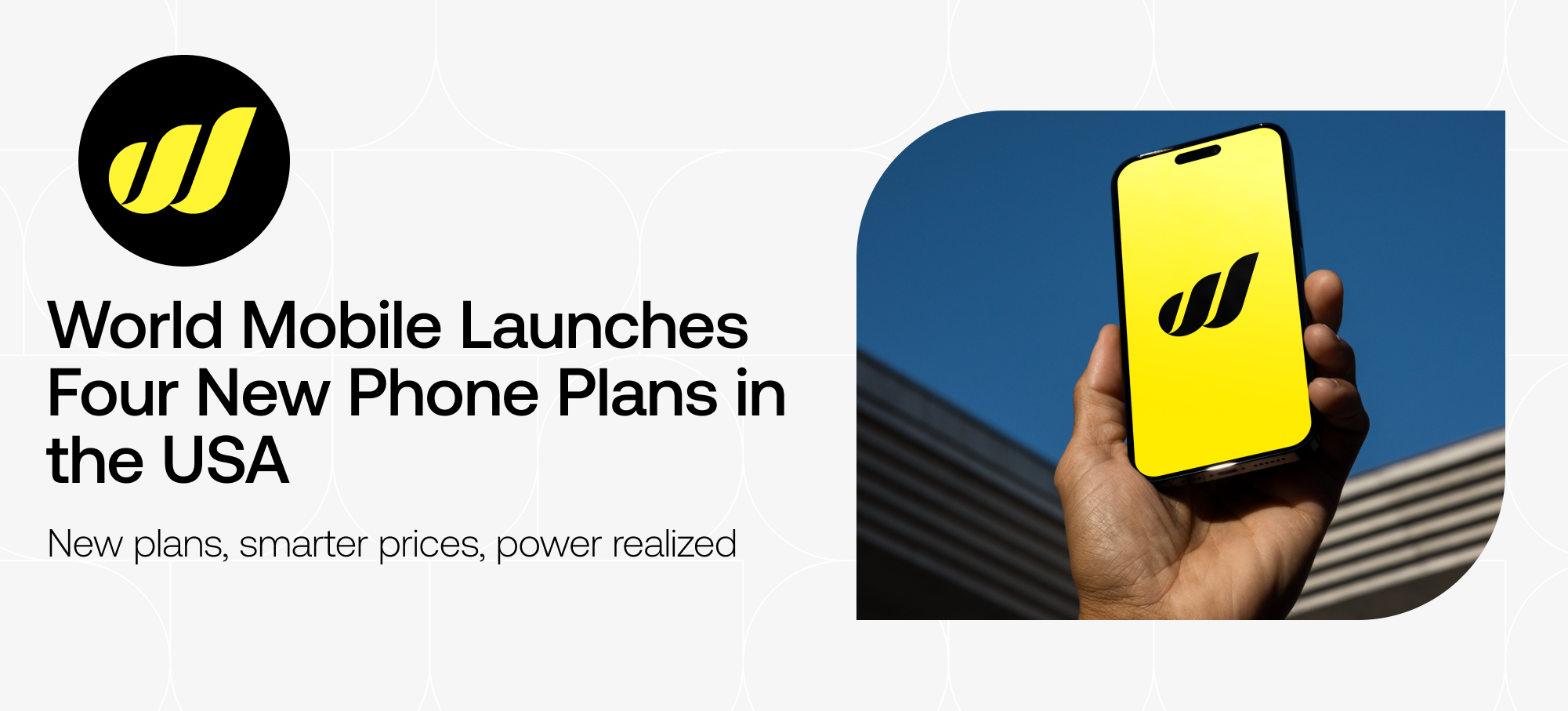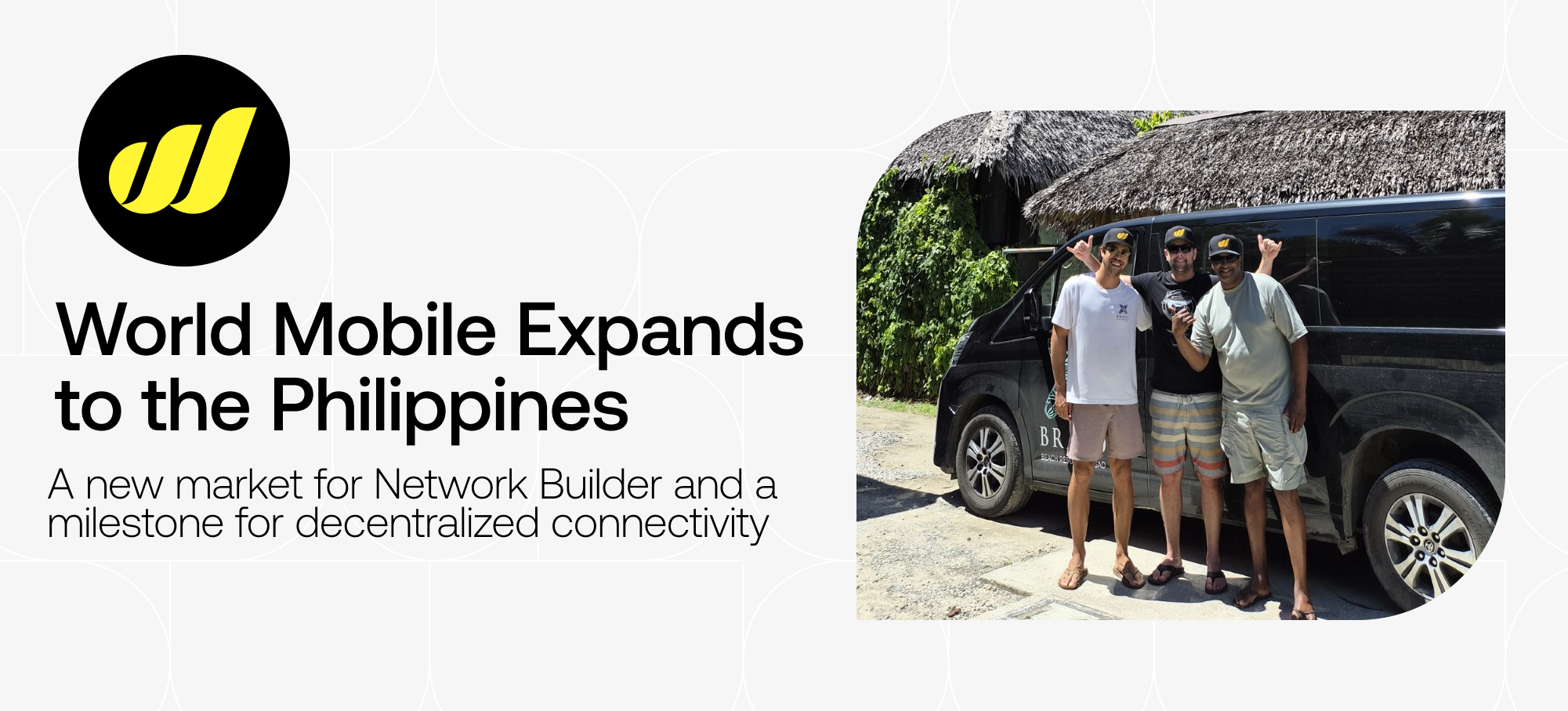The DePIN Report, published by The Block’s research team, puts a spotlight on the future of global infrastructure and on the builders proving what’s possible right now. Decentralized Physical Infrastructure Networks shift power away from corporate monopolies and back to the people, across storage, compute, sensors, and connectivity.
Among the standouts, World Mobile is recognized because of the strength and adaptability of our AirNode network, particularly in times when connectivity takes a hit following natural disasters. AirNodes connect neighborhoods, expand coverage in remote areas and bring communities back online when they're disconnected. It’s clear validation that resilience, community ownership, and shared economic participation are proven, working features of the future we envision and build every day.
Download the full DePIN Report here.
DePIN is the Antidote to Big Wireless
The report makes one thing clear: the legacy model can’t keep up.
Traditional telecoms cling to outdated towers, slow buildouts, and entire regions that are still suffering from monopolistic corporations and unreliable coverage. DePIN flips that script. It invites anyone, anywhere, to own a piece of the infrastructure and share in what it creates.
What makes World Mobile stand out is the resilience of our model, especially when it’s needed most. We don’t just build on our own terms – we respond quickly when connectivity is the difference between disaster and repair. Operation Connecting the Disconnected proves that.

After Hurricane Helene ripped through North Carolina, entire villages were left disaster-struck, homeless, and isolated. With no connectivity and no electricity, it was impossible to rally support networks and begin rebuilding what was lost.
Responding to a tweet from a community member, World Mobile launched operation Connecting the Disconnected – mobilizing a crew to fly to North Carolina armed with AirNodes.
Using Starlink backhaul, these AirNodes restored instant mobile service while traditional networks stayed down and brought hope to the lives of every single resident in a disaster-struck community.
People Power Beats Corporate Control Every Time
The DePIN Report reminds us why our model matters now more than ever. Our hybrid approach (decentralized AirNodes anchored by trusted telecom know-how) provides a sustainable alternative to Big Wireless, particularly in the following areas:
- Hardware onboarding: The AirNode network is designed to be adaptable. Different models serve different use cases – from Titans that provide essential ‘Overwatch’ service to Sparks that connect stadiums, malls, and crowded neighborhoods. AirNodes are built for dense areas and remote locations alike, expanding connectivity everywhere and bringing rewards for Operators.
- Scalability: We deploy AirNodes across tough terrain, connect them through satellite or fiber backhaul, and keep expanding in areas Big Wireless ignores.
- Data sovereignty: AirNode Operators handle last-mile connectivity. A robust network of EarthNodes processes the data securely and transparently, ensuring that no part of the process is centralized. Everything is owned by people.
This is ownership that works. A signal that stays up when storms hit and a model that returns value to the people who run it.
Take Back Control
Recognition, especially from a trusted research organization like the Block, is encouraging and inspiring. But what truly matters is what we do next. Every AirNode added, every community brought online, every Host and Operator earning - it’s all proof that the power to connect the world belongs to the people. Not to boardrooms.
Want to help build a signal you can trust, a network you can own, and a future where connectivity isn’t locked up in corporate towers but distributed by every household?
Join the movement. Reclaim power over your network.
Download the full DePIN Report here.
.png)



